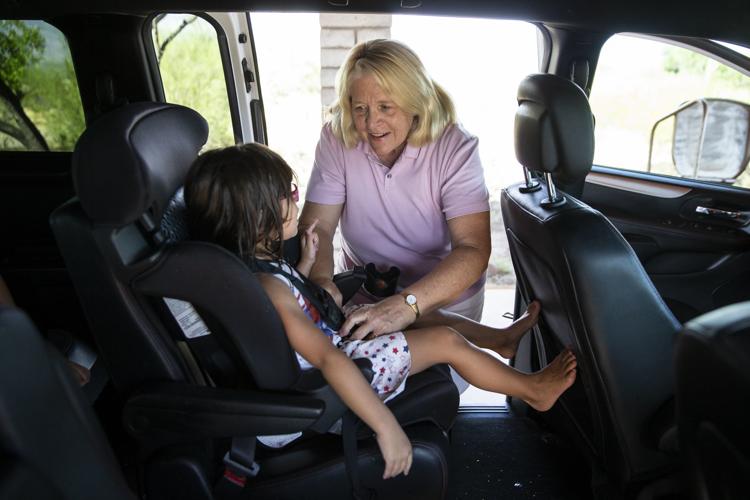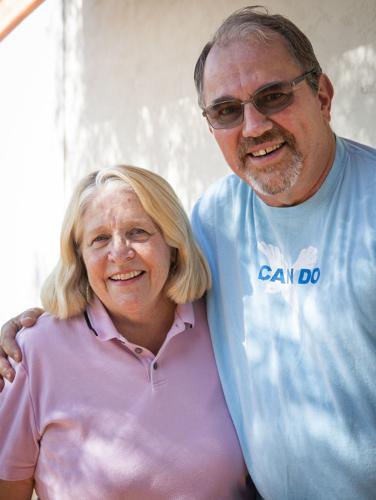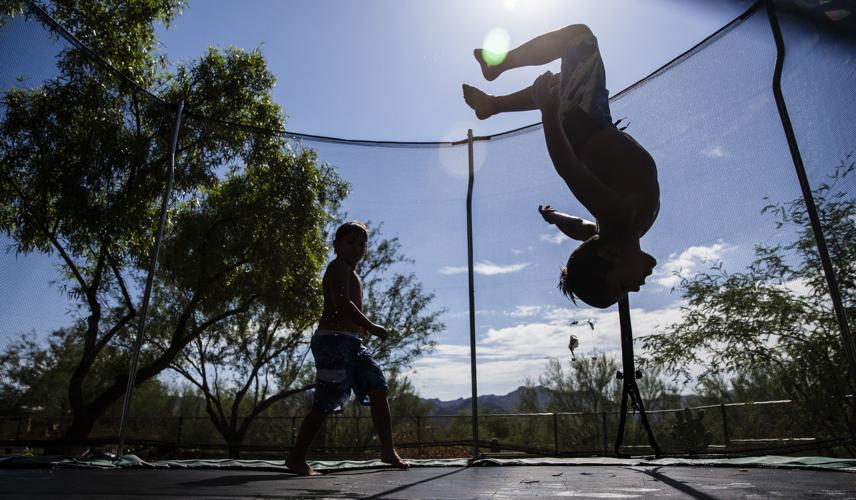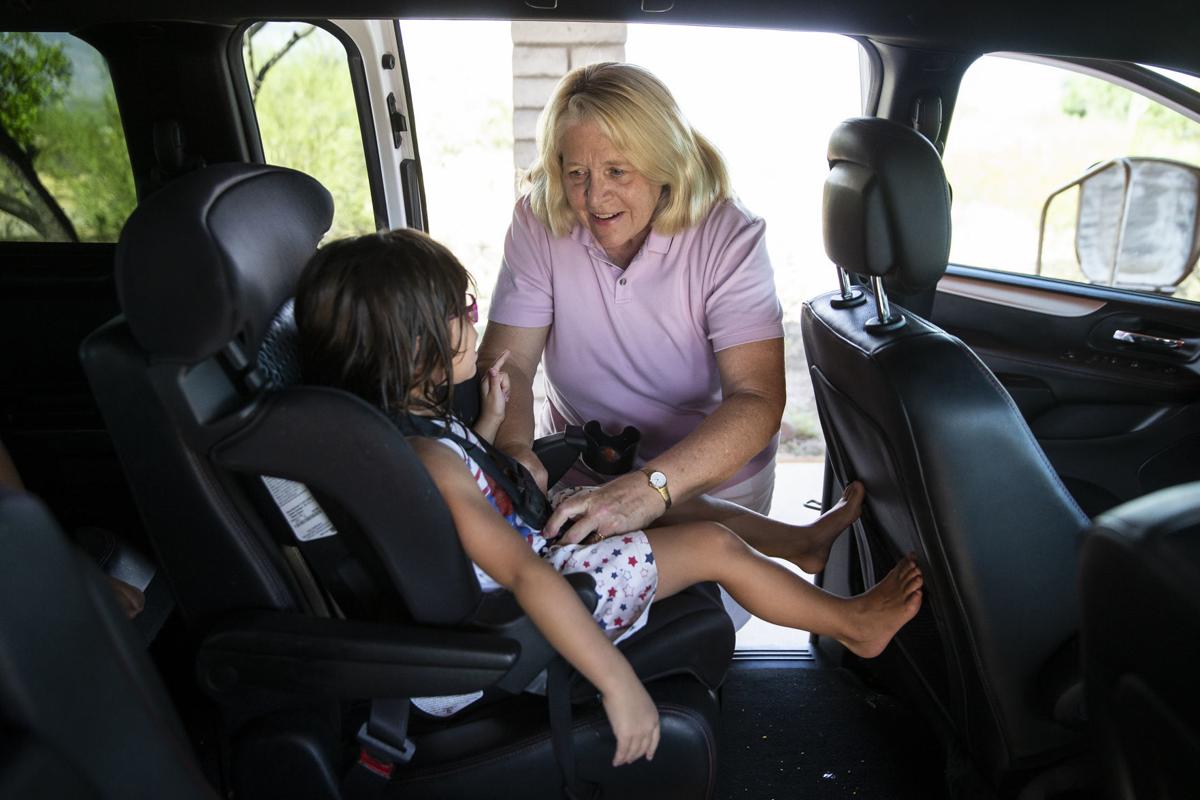Talking about death is rarely easy, but for thousands of older Arizonans these conversations are even more heart-wrenching because of what it could mean for a child.
About 200,000 Arizona children live with relatives — nearly half with a grandparent or grandparents — because their parents are unable or incapable of raising them due to addiction, incarceration, abuse or neglect.
As of last summer, 18% of these so-called kinship caregivers were aged 61 and older, while 44% of the children involved were age 6 and younger, according to data from the Arizona’s Children’s Action Alliance.
The fear these children carry with them about losing another caregiver is familiar to Tucson grandmother Andrea Zukowsky, 68, who has adopted four of her grandchildren.
She said the oldest is a teenager who worries incessantly about Zukowsky’s health.
When Zukowsky fell recently, her grandchild grew even more alarmed and has started calling her several times a day to check up on her.
In order to help grandparents like Zukowsky, a coalition called the Arizona Grandparent Ambassadors holds an annual summit in Phoenix. The group formed in Tucson in 2010 after kinship caregivers lost financial assistance due to budget cuts.
One of the coalition’s workshops at this year’s September conference will be about setting up safety plans so children whose caregivers get sick or die do not end up in foster care or a group home.
Zukowsky already has such a plan in place: Her sister and brother-in-law will take the kids, she said.

Carl and Mary Glenn Hoge are planning to adopt the three grandchildren they are raising.
Tucson grandmother Laura Jasso, who is 72 and raising twin granddaughters, is also planning ahead.
Jasso said her previous work on a foster care review board, coupled with a caseworker’s advice, led her to set up a plan to have her sons help with the girls if necessary.
But not all grandparents plan ahead like that, and not all have a son or sister to turn to if they get sick or terminally ill.
Kelly Griffith was raised by her grandparents until she was 11, and then they died within a year of one another.
There was no plan in place, and her grief was compounded by the horror of seeing her relatives fight over who would take custody of her.
Griffith, executive director of the Southwest Center for Economic Integrity, now works to help grandparents raising grandchildren and other kinship caregivers.
When grandparents are asked to raise their grandchildren, she said, their health becomes a lower priority and that’s often compounded by financial stress, busy schedules and a lack of services.
The question of where a child or siblings will live if a grandparent is ill or dies is also very stressful, she said, so planning is vital.
“The idea is to get that stuff out in advance, even though we don’t want to think about it,” she said.
Griffith, 55, said if the child is old enough, he or she should know that there is a plan in place.
“Having no plan is not easy for a child who has lived with grief and loss and abandonment already,” she said.
Elaine Cauley, a consultant who helps people plan for their deaths, will be leading the talk on safety plans at the September summit.
“You want the child to know that there’s a plan. I know cases where grandparents have passed away and there was no provision in place,” she said. “The children have ended up going back into group homes, back into the system.”
It sometimes takes months to find a family friend or relative who will agree to help.
These types of plans are also important for caregivers who are fictive kin, a term used when the adult and child are not related but have become like relatives.

Grandsons of Carl and Mary Glenn Hoge play on a trampoline. Mary Glenn Hoge says having someone to care for their grandkids in case she and her husband die is “an issue that’s always on our mind.”
That’s what’s happened with Ann Nichols, who helped raise five siblings and is now caring for the daughter of one of those beloved foster children.
Nichols, 77, was recently diagnosed with liver cancer. The first treatments were rough, she said, but she’s been feeling better.
“I don’t know fully the prognosis and I’ve got to make a good plan for my grandchild,” she said.
Since Nichols has been involved with the Arizona Grandparent Ambassadors over the last six or so years, two members have died and, in one case, there was no safety plan in place.
That’s not what she wants for anyone she has cared for and loves.
Most of the grandparents and kinship caregivers she knows are not wealthy, she said, and so there aren’t trust funds to set up.
Instead, they are turning to neighbors, family and friends for help in setting up a safety plan.
Sometimes it’s challenging to find the time to do the asking and planning.
Mary Glenn Hoge and her husband, Carl, began to care for their three grandchildren more than three years ago and plan to adopt them this fall. The kids are ages 7 and younger.
The couple are in their early 60s and hope to get a safety plan completed soon.
“There was no notice, no advanced planning,” Mary Glenn said of the children arriving at their home. “One day you get a knock on the door.”
The couple’s son is incarcerated and the children’s mother has disappeared. Addiction is the issue, Mary Glenn said, and while they hope their son can get to know his kids again once he is released, he has relinquished his parental rights.
She said it’s hard to think about the future and how the children will be if she and her husband are not there to care for them.
“It’s an issue that’s always on our minds,” she said. “We consider ourselves fairly young and healthy, but over the next 15 years, you never know what will happen.”







